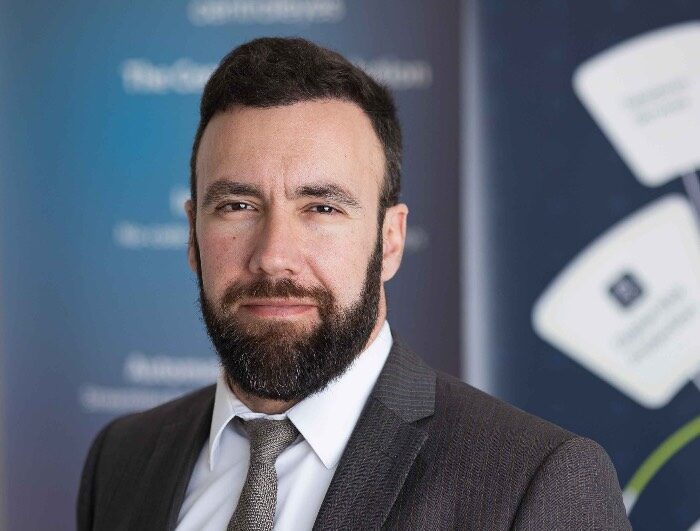Although this was not on the original list of Taiichi Ohno’s seven identified wastes of Lean Management, we cannot wrap up this series of discussion about process wastes without augmenting the original list with a very important addon that came later: this being the very common waste I see at clients in different business environments: under-utilised resource talent, skill, capability, experience and/or knowledge.
The matter with such type of waste has become immensely relevant. This is especially true as experienced in current times, when – specifically within a local setting – the criticality of effectively utilising the best possible skill, trade, capability and knowledge of our resources has become so crucial.
And this goes both ways: either not fully utilising capability or expecting too much out of the ability of our resources.
The value brought about by our people, within any context of an organisation, can have a detrimental impact on the success, or failure, of our business.
As leaders of our business enterprises, we must appreciate and give value to the talent that our most precious asset, intrinsically, brings along – even if such talent is not on our original role requirements list!
Many a time have I observed client organisations made up of a very relevant team of people, only to identify such a lack of the individuals’ engagement within their job function: the position they have been employed to assume. I see people who are over-driven to perform duties that they are not fit to perform. On the other hand, I also observe situations where people who can do so much more are restricted within suffocating roles. Silos that do not allow them to shine as bright as they dare.
As a result, disengagement, demotivation and possibly, resignation.
We, as organisational leaders, need to put in the right setting and mechanism to ensure that our people engage within their part of the process.
Our employees need to also understand their contribution within the context of the broader perspective.
As organisation leaders, we need to provide that flexibility platform within our organisation to enable the capability of individuals to be brought out and to better define their role based around their best ability. Cross-functional movement might expose strengths individuals might excel at, bringing out their very best skills.
This is not only true for operational roles (administrators, operators, technical staff, etc) but possibly even more so at the more senior positions (managers, executives, top management). The latter possibly demonstrating even more expensive symptoms that hit hard on our business performance.
This might normally be the result of us, as decision makers or managers, failing to put in the right setting whereby our employees can fully integrate within the business process, understand where they belong in terms of the role they assume, and ensure that they are in a position to maximise the intrinsic knowledge and talent that they bring along with them. The latter might mean being open to flexibility and cross-functionality, whereby people might need to be given the opportunity to fit within an alternative role that they can perform best at.
Some real-life case scenarios
1. Over expectations from our employees
We have possibly all been recently experiencing the struggle of non-native speakers serving at tables in restaurants/cafés demonstrating clear effort to communicate with blank-faced patrons, trying to get their order across.
A clear example of utilisation of individuals who are not prepared, not sufficiently trained, or do not possess the capabilities of a role they are put into. Or, a job that they accept, without possessing the basic requirements of the position taken up: clear communication wavelengths. Net result: loss of time attempting – possibly erroneous – communication with clients, rework and material waste resulting as delivered food or drink is sent back because it turns out that the order was not taken correctly, frustration of the patron, not to mention of the staff themselves. Possibly, the gradual loss of patronage to competitors up the road.
A note to employers: whilst appreciating the fact that resource scarcity is an active reality, before employing just about anyone to perform tasks, do see that they are fitting. Do fill in the gaps that may exist between resources available and roles to be filled. Invest in proper induction, training, and preparation. Attempt to close as many identified gaps as possible. Ongoing measurement and evaluation to ensure resource engagement is key. Give your people the opportunity to improve their competence, learn, grow and shine at whatever tasks they are engaged with, and more.
Expecting our employees to perform beyond their existing capabilities creates frustration on the part of all stakeholders involved – with possible gradual detrimental loss to the business in the long run.
2. Enabling career development opportunities for our people
Very recently I was involved in a project involving changes to operational aspects of the business, the introduction of new technologies, and as a consequence, the re-organisation of the company structure at some impacted roles.
As a consequence of this restructure, the company needed to review the capabilities demanded from new roles created. A skill gap in the making being identified as a direct result.
The lady originally occupying an operational role was no longer the right fit for the new way of doing things.
On the other hand, my client was hesitant to employ more overheads – which was understandable, given the economic situation at the time.
A deeper look through the existing human assets in the organisation – its existing employees, their skills and capabilities – soon revealed at least two innovative opportunities for career development within the company.
Offering the prospective role to a junior material handler who had a personal passion for adapting to technology, of course, backed by the right level of support offered through skill enhancement and development, saw the skill gap being filled in by this aspiring individual whom the company had employed a couple of years earlier. These unseen skills were clearly not being maximised to the employee’s best abilities.
On the other hand, the under-skilled lady was offered an opportunity to pursue a highly needed business development role within another department. This new role fit her like a glove: given her deep product knowledge, her outgoing personality, friendliness and natural approach were just about the perfect ingredients for the new position.
The vacated material handling role was in fact no longer required as a direct result of changing methodologies and reducing the need to transport certain material (remember: transportation waste from our earlier article?).
Both newly created career opportunities are doing well!
A happier two employees. Both seeing their CV enriched as a result of these career development opportunities.
A happy client, boasting significant savings in their total cost of operations since the change materialised.
A client who needed not add to his existing headcount (and costs) because he already had the capability within the organisation through his existing resources – only, they were not fitting in the right role for them!
3. Underutilised expertise
Another case, of many that I can relate through real-life exposures, that I would like to recount here, is one that I came across a few years back.
At the time, I was undertaking an operational review for a scientific-related enterprise. As I would normally do, Gemba Walks are an important tactic that I resort to during my process discovery. I love walking alongside the process, where the value is generated. I take time at observing, getting to know, and speaking with the drivers of the process, and feeling the flow (… or the lack of it!) as I unearth the mysteries concealed within the works.
On a particular occasion, I had come across this gentleman, and as I got to know him better through my interactions, I gathered that he was a distinction-qualified Master of Sciences graduate. His duty at the time was as a Qualified Person (QP), engaged within an organisation, tasked at executing, in essence, a rather rudimentary data inputting task: a role fit for a more junior individual!
This gentleman has been tasked to perform a data-manipulation task, entering product related data extracted off a paper-based source (delivery note) onto an electronic system (a basic list – Microsoft Excel spreadsheet!) All this was performed for traceability’s sake. A task that he himself admitted that was highly flawed with data entry errors (his Excel spreadsheet contained no data entry validation; no Poke Yoka capability!) He himself admitted that should anything go wrong with a product batch number, his best bet was to physically go check stocks on shelves, rummage through manual dispatch notes and, …hope for the best.
Can you identify the myriad of waste opportunities here?
What if this highly intelligent, underutilised individual was given the opportunity to flourish at what he might be best at doing (offering a much higher value-added activity) whilst introducing a totally revised technique for undertaking his current mundane task? Something that could have possibly been resolved through an appropriate process redefinition and technology tools deployed?
4. Being locked into a box… and having to stay there!
Not that long ago I was working with a client. A third-generation business owner who was so clearly caught up in a top role, but was being confined within the walls of tradition. A family heirloom that found this top ranking individual suffocated and choked, to a degree that prevented him from taking the family business through to new heights and opportunities.
Inherited mindsets, unwarranted respect to ancestors’ mediocre and dictatorial leadership styles, a culture of micromanagement, and total control by the thriving elders in the business, preventing opportunities from being struck for the sustainability and continuity of the business, into the future demands.
Again, the capability of sensible open-minded upcoming business leaders being smothered from exposure and performance ability…such a pity!
Failure to engage employees in the process of change and improvement, and in better defining their roles to best fit their individual capabilities, is therefore seen as a fundamental ‘waste’. This brings in the eighth waste of Lean, which although was not an original part of the Toyota Production System (TPS) definition of wastes, has subsequently been supplemented to the list (the Eight Wastes of Lean) that has been discussed through this series of articles.
So many organisations are now very well aware of such waste of human potential. We need to engage our teams in the process of continuous process improvement. Our people might have all the talent and ingenuity we need, and we risk not exposing this, and maximising on it.
Let us recall and keep top-of-mind that the people doing the work are probably the most capable of identifying problems, and coming up with the best solutions for them.
Ensuring that our people are part of the lifeblood of the business, and that they too can be our change agents in the evolution processes and their refinement, is key!
Ing. Joseph Micallef is a freelance Consulting Advisor, bringing with him over 30 years’ worth of experience across various sectors. Working in areas related with quality, lean, business process transformation and project execution and programme management he can be contacted directly on m +356 9982 2244 or e: joseph.micallef@icloud.com.
Give back to the community: 5 ways business leaders can use their influence to be more philanthropic
Given social media’s rise in recent years, business leaders’ roles as instigators for social change have never been greater.
What CEOs can learn from Ferrari and a children’s hospital
An unusual combination that makes for great insight.
3 strategies to help your team manage stress and stay productive
As a leader, you play a crucial role in creating a workplace culture that prioritises both productivity and employee well-being.
5 key self-development tips every business leader needs to take note of
Self-development can come in the form of better leadership skills, growing a wider network of contacts, and also an improved ...









